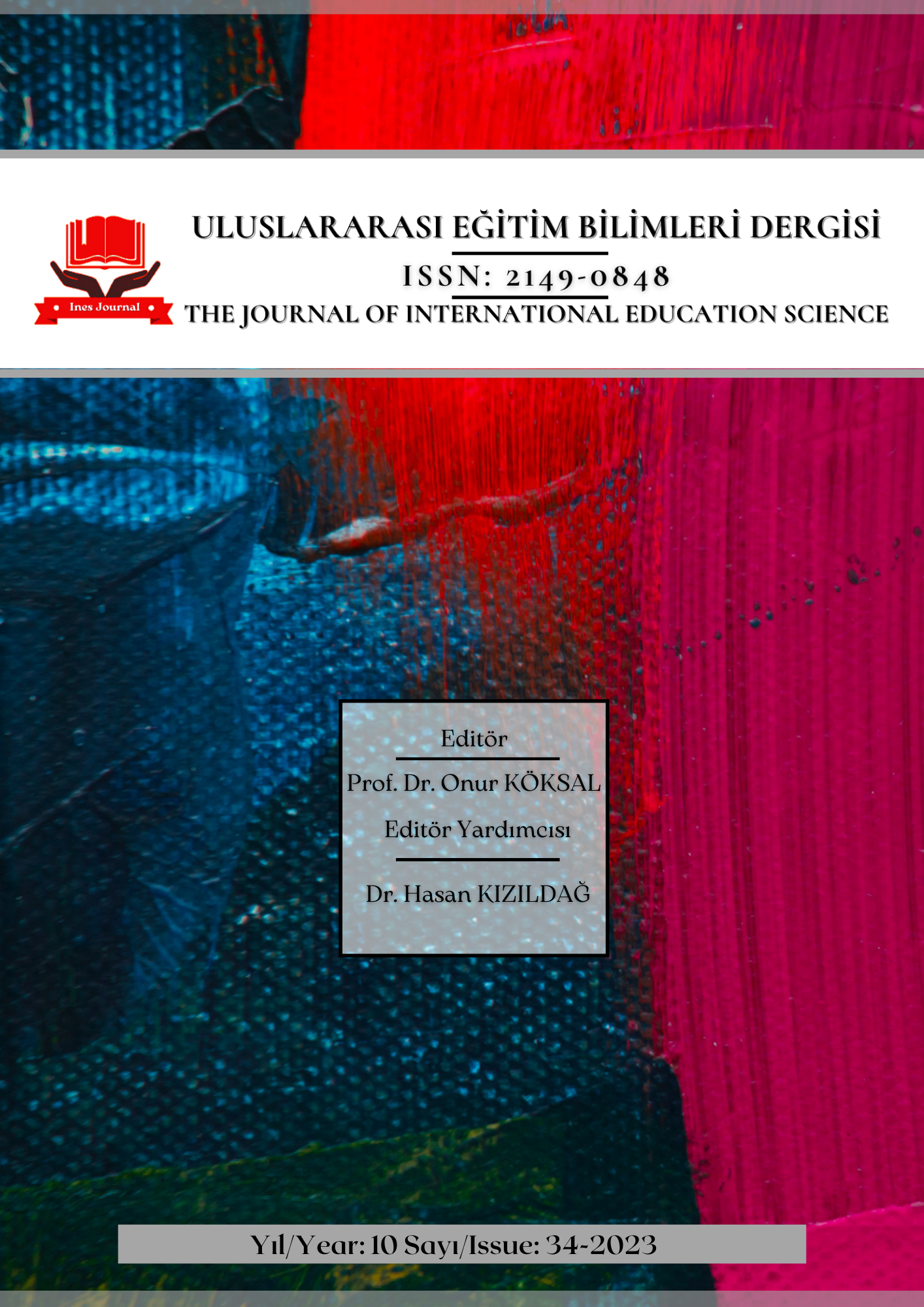Proje Yaklaşımına Dayalı Eğitim Programının Okul Öncesi Dönem Çocuklarının Görsel Algı ve Matematik Becerilerine Etkisinin İncelenmesi
Author :
Abstract
Bu araştırma Proje Yaklaşımına Dayalı Eğitim Programının okul öncesi çocuklarının görsel algı ve matematik becerileri üzerine etkisini belirlemek amacıyla yapılmıştır. Araştırmada deney- kontrol gruplu ön test-son test ve kalıcılık testini içeren yarı deneysel desen kullanılmıştır. Araştırma 2020-2021 eğitim öğretim yılı bahar döneminde Kars il merkezinde yürütülmüştür. Araştırma deney grubu 22 ve kontrol grubu 23 olmak üzere toplam 45 çocuk ile gerçekleştirilmiştir. Araştırmada çocukların demografik bilgilerini elde etmek amacıyla “Genel Bilgi Formu”, görsel algı becerilerinin değerlendirilmesinde “Frostig Görsel Algı Testi” kullanılmıştır. Matematik becerileri ise “Erken Matematik Testi (EMAT)” ile belirlenmiştir. Araştırmacı tarafından oluşturulan Proje Yaklaşımına Dayalı Eğitim Programı deney grubuna 8 hafta boyunca, haftada beş gün uygulanmıştır. Kontrol grubundaki çocuklar ise okullarında uygulanan okul öncesi eğitim programına devam etmişlerdir. Uygulama öncesinde ön test, sonrasında ise son test ve deney grubuna kalıcılık testleri uygulanmıştır. Araştırma sonucunda deney grubuna uygulanan Proje Yaklaşımına Dayalı Eğitim Programının görsel algı ve matematik becerileri üzerine etkili olduğu belirlenmiştir. Uygulanan eğitimin çocukların görsel algı ve matematik becerileri üzerinde kalıcılığını belirlemek için dört hafta sonra deney grubuna kalıcılık testi uygulanmıştır. Kalıcılık testi ile deney grubunun görsel algı ve matematik becerilerinde eğitim programının olumlu etkisinin kalıcı olduğu görülmüştür. Araştırmanın bulguları Proje Yaklaşımına Dayalı Eğitim Programının, çocuklarda görsel algı ve matematik becerilerini olumlu yönde etkilediğini göstermiştir.
Keywords
Abstract
This research was carried out to determine the effect of the Project Approach-Based Education Program on the visual perception and math skills of pre-school children. Semi-experimental design consisting of pre-test, post test and follow-up test, measurement of experimental and control group was used to determine the effectiveness of this program. The research was carried out in the city center of Kars during the spring term of the 2020-2021 academic year. The participants consisted of 45 children in total, 22 in the experimental group and 23 in the control group. Demographic information from the children was obtained through General Information Form. The Frostig Visual Perception Test" was used to evaluate visual perception skills. Moreover, mathematics skills were determined with the “Early Mathematics Test (EMAT)”. The Project Approach-Based Education Program created by the researcher was applied to the experimental group for 8 weeks, five days a week. The children in the control group continued the pre-school education program applied in their schools. Permanence tests were applied to the pre-test before the application, and then to the post-test and experimental group. As a result of the research, it was determined that the Project Approach-Based Education Program applied to the experimental group was effective on visual perception and mathematics skills. In order to determine the permanence of the applied education on children's visual perception and mathematical skills, a permanence test was applied to the experimental group four weeks later. With the retention test, it was observed that the positive effect of the training program on the visual perception and mathematics skills of the experimental group was permanent. The findings of the study showed that the Project Approach-Based Education Program affected children's visual perception and mathematics skills positively.





